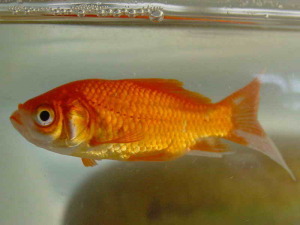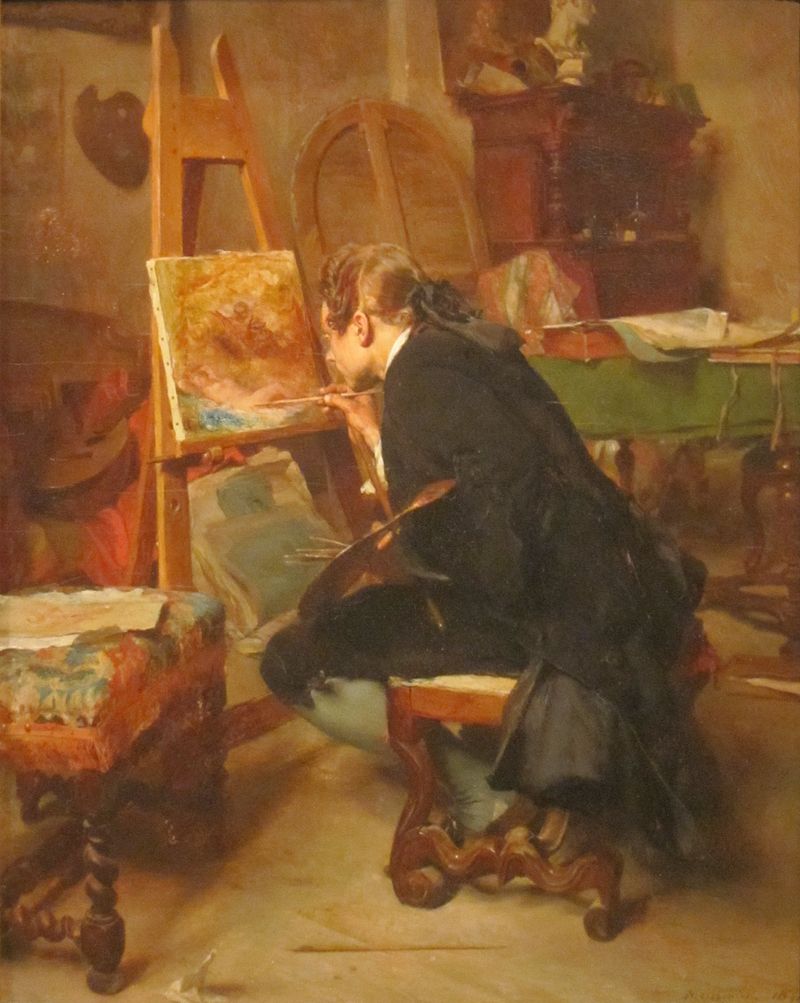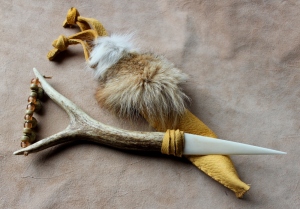My friend and fellow creative person, Liv Rainey-Smith, shared a fantastic article by Sarah Manning over Facebook earlier this week. Entitled The Pomplamoose Problem: Artists Can’t Survive as Saints and Martyrs, it neatly skewers the idea that artists (and writers, and other creatives) shouldn’t seek financial recompense for our work, and that artists who place money as a priority are automatically sellouts. There’s a quote I particularly like:
It’s a dangerous, impossible standard that is repressing self-expression and killing culture…The American artist is expected to be both a saint and a martyr. Operate outside the capitalist system and we’ll praise you for your creations, call your poverty a quaint kind of martyrdom that has nothing to do with us, and at the same time resent you for being holier than thou. Try to operate within the capitalist system and we’ll call you out as an imposter.
With my own work, I find this attitude complicated further by the spiritual dimensions of my art and writing. Within the pagan, New Age and related communities, there’s a deep vein of mistrust of money and materialism, to the point where any sort of material comfort is seen as a dangerous seduction into evil. (There’s a great rebuttal by Jake Diebolt in this week’s guest post at my other blog, Paths Through the Forests.) Those seen as leaders (or who at least manage to publish at least one on-topic nonfiction book) are held to especial levels of scrutiny; spiritual enlightenment supposedly makes one immune to the needs of the physical world; achieve a certain amount of transcendence and you no longer need to pay rent, or so the theory seems to go.
Well, the only level of “transcendence” I know of in which a person no longer needs shelter is death, and I’m not there yet. Moreover, I intend to keep it that way as long as I can. And since I just got done talking about how we artists never seem to run out of ideas for projects, I think I can safely assume that most of my fellow creative types would like long lives full of opportunities to make neat things happen.
 This means we need to have a place to live, food to eat, access to health care, and all the other things everyone else requires. And somehow this comes as a shock to certain people who appear to be under the misapprehension that, like a goldfish in a bowl, artists will happily subsist in the most minimal of living conditions simply for the joy of making art. What people often don’t realize about both goldfish and artists is that these minimal settings are inadequate. Goldfish are a type of carp which can grow quite large, and a plain bowl of water without regular filtration can quickly accumulate toxins, leading to either an unhealthy or dead goldfish. And while a human being can ostensibly live in an overcrowded slum apartment with bad food and alcohol taking the place of medical attention, over time such a lifestyle takes a serious physical and psychological toll.
This means we need to have a place to live, food to eat, access to health care, and all the other things everyone else requires. And somehow this comes as a shock to certain people who appear to be under the misapprehension that, like a goldfish in a bowl, artists will happily subsist in the most minimal of living conditions simply for the joy of making art. What people often don’t realize about both goldfish and artists is that these minimal settings are inadequate. Goldfish are a type of carp which can grow quite large, and a plain bowl of water without regular filtration can quickly accumulate toxins, leading to either an unhealthy or dead goldfish. And while a human being can ostensibly live in an overcrowded slum apartment with bad food and alcohol taking the place of medical attention, over time such a lifestyle takes a serious physical and psychological toll.
So it should come as no surprise when an artist finds a way to crawl out of that level of destitution, we take it. That’s when the real fun begins. We’ve ceased to be the romantic notion of the artist nobly starving for their art, putting the creative process and the spiritual efforts far above any material wants or needs. Instead we now demand the same realistic treatment as everyone else.
Most artists have day jobs; most of those who don’t have a spouse or other person taking care of their basic financial needs. That rarest of creatures, the creative person who subsists entirely on income from their work, is held up as the magical “someday goal” for those artists still chugging away as a barista or retail clerk or warehouse worker. “Maybe someday I’ll be a good/popular/prolific enough artist to get to that point!” they think. That dream carries them through the drudgery of what actually pays their bills. But it’s not all dreaming and scheming; when the toil of a job they hate becomes too much, they may lash out at their self-employed counterparts with a flail of envy. And that is part of what feeds into the “Artists shouldn’t make money from their art!” attitude. It’s spoiled dreams and sour grapes all the way.
Not every artist with a day job is so embittered. Some are quite content with what pays their bills; art has remained a hobby for them, a nice diversion at the end of the day to blow off some steam. They may give away everything they create to friends and family, buying more supplies with the surplus from their paychecks. Or they sell their wares for next to nothing, undercutting everyone else’s prices on Etsy or at the craft fair. There is no desperation there, no drive to draw a profit. Nothing wrong with that approach in and of itself. But it begs the question: why don’t more artists just go get day jobs in their field?
 For many artists a steady gig, even if it is making art for someone else’s specs, is the ideal balance between paying the bills and expressing one’s creativity. Unfortunately, even freelance work is scarce, and the competition is vicious. Most of the jobs are for graphic artists, so anyone working in other media is likely to find slim pickings at best. And a full-time permanent position with benefits? You may as well toss a handful of chocolates into a throng of starving crows and watch the murder commence.
For many artists a steady gig, even if it is making art for someone else’s specs, is the ideal balance between paying the bills and expressing one’s creativity. Unfortunately, even freelance work is scarce, and the competition is vicious. Most of the jobs are for graphic artists, so anyone working in other media is likely to find slim pickings at best. And a full-time permanent position with benefits? You may as well toss a handful of chocolates into a throng of starving crows and watch the murder commence.
And yet, this is what’s held up to us as the solution to our problem. Go draw a steady paycheck like everyone else. Stop charging more than pocket change for your own work. Keep your art marginalized and low-paid so we can keep living down to that image of starvation and conformity. Be the shining example of uncorrupted creativity, untouched by filthy lucre.
Yes, what about that notion of corruption? Don’t sellout artists end up churning out crap because they’re more concerned with money than art? No more than anyone else. Everyone does what they need to to stay fed and sheltered; for some people that’s wrangling numbers in an accountant’s office, for others it’s detangling spaghetti code, and for still others it’s creating whatever commercial art an advertising studio wants. Sometimes artists do end up pandering to popular trends because that’s what pays the bills. it doesn’t mean they no longer put their creativity into the process, nor do they stop making more experimental art on their own time (and dime.)
Personally, I’ve found that an artist with the bills paid will make better art. When I have time to myself, when my commission list is empty and I don’t have any upcoming vending events, when I’ve made enough cash to cover rent and bills and other expenses, that’s when I really shine. Those are the golden moments when the stress of deadlines no longer holds me back, and I can make whatever the hell I want. I can try out new techniques; I can explore projects that may sit around unsold for years simply because they’re fun to make; I can try writing in a new genre I haven’t played with before. I couldn’t do these things if I wasn’t able to literally buy myself the breathing room to do so.
I want you to notice something very important: taking commissions and selling simpler, more popular pieces to pay the bills doesn’t take away my creativity. These “bread and butter” art sales are my equivalent to a day job; they enhance my ability to create the more experimental pieces I do on my own time. And unlike someone working a desk job, I am constantly using my artistic skills and keeping them honed; there’s no transition from work headspace to art headspace. It’s only a matter of what project I’m focused on at any given moment. I love every piece I create, too, from the simplest little pouch to the most elaborate headdress, and all points in between. But I also love having a roof over my head, and so I deliberately apportion time to different sorts of project so that I make sure I still have a place in which to work and materials to create with.
This is the reality of artists today: We are not your romantic notions, your symbols of the sylph-like elevated creative; our art is not automatically enhanced by hardship, nor should you enforce our hardship just to make us make art that you consider to be more “genuine.” We are people with real needs and problems, and we have to eat, too. We work every bit as hard as you do for each and every dollar, often for longer hours and less security.
And that’s the thing this culture needs to come to accept: art is work, and it’s okay to pay us for it, dammit.
Do you enjoy my writing and art? Want to make sure I can keep making cool stuff? Consider being my patron on Patreon, purchasing a piece of my art, or giving one of my books a home! And don’t forget to share this post on Facebook, Twitter, and elsewhere, too.


